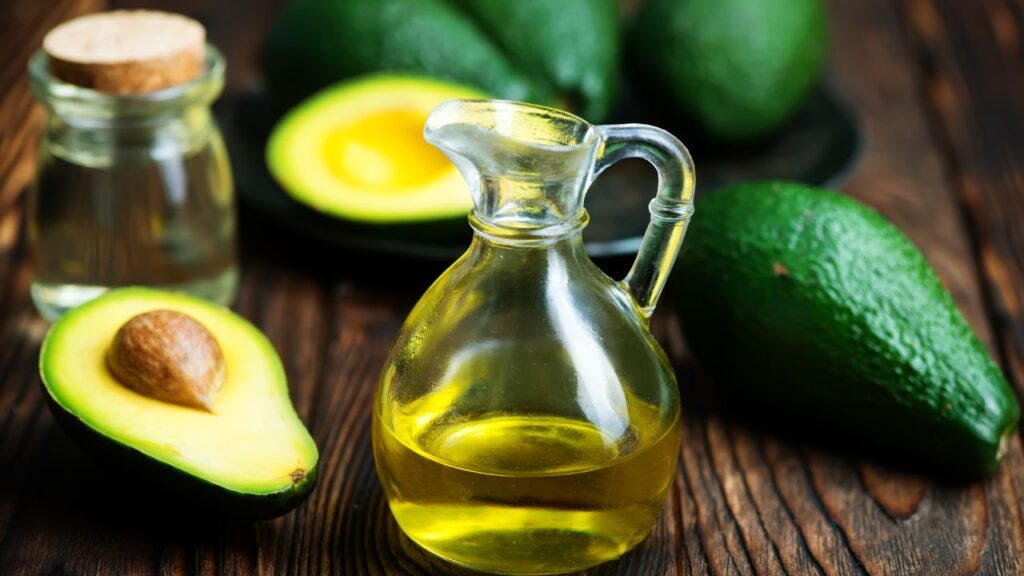
Have you ever felt bloated after a meal or struggled with indigestion? How to use coconut oil for better digestion might just be the natural remedy you need. Coconut oil isn’t just a versatile kitchen staple; it’s also packed with properties that can enhance your digestive health. Let’s dive into how this tropical oil can transform your gut health and how you can incorporate it into your daily routine.
Contents
- 1 Understanding Digestion and Gut Health
- 2 What is Coconut Oil?
- 3 How Coconut Oil Benefits Digestion
- 4 Ways to Incorporate Coconut Oil into Your Diet for Better Digestion
- 5 Recommended Dosage and Usage Tips
- 6 Comparing Coconut Oil to Other Oils for Digestive Health
- 7 Personal Experiences and Testimonials
- 8 Frequently Asked Questions (FAQs)
- 9 Conclusion
Understanding Digestion and Gut Health
The Digestive System Explained
Digestion is the process your body uses to break down the food you eat into nutrients, which are then absorbed into your bloodstream. From chewing your food to the final elimination of waste, every step is crucial for maintaining overall health. A well-functioning digestive system ensures that you get the necessary nutrients while effectively removing waste products.
Importance of a Healthy Gut
A healthy gut does more than just process food. It plays a pivotal role in your immune system, mental well-being, and even your energy levels. The gut microbiome, a community of trillions of microorganisms living in your intestines, is essential for digesting food, producing vitamins, and protecting against harmful bacteria. When your gut is balanced, you’re less likely to experience digestive issues and more likely to feel your best.
Common Digestive Issues
Many people face digestive problems such as bloating, indigestion, and Irritable Bowel Syndrome (IBS). These issues can disrupt daily life and lead to discomfort. Understanding how to manage and improve your digestive health is key to enhancing your overall quality of life.
What is Coconut Oil?
Composition of Coconut Oil
Coconut oil is derived from the meat of mature coconuts. It’s rich in saturated fats, particularly medium-chain triglycerides (MCTs), which are easily absorbed and utilized by the body for energy. Unlike long-chain fatty acids found in many other oils, MCTs bypass the usual digestion process and go straight to the liver, where they are quickly converted into energy or ketones.
Types of Coconut Oil
There are primarily two types of coconut oil:
- Virgin Coconut Oil: Extracted from fresh coconut meat without the use of high heat or chemicals, preserving its natural flavor and nutrients.
- Refined Coconut Oil: Made from dried coconut meat, or copra, and often processed with heat and chemicals to remove impurities, resulting in a more neutral flavor.
Historical and Traditional Uses
Coconut oil has been used for centuries in various cultures for both culinary and medicinal purposes. In traditional medicine, it’s prized for its antimicrobial properties and its ability to promote skin and hair health. Its versatility makes it a beloved ingredient in kitchens around the world.
How Coconut Oil Benefits Digestion
Medium-Chain Triglycerides (MCTs)
MCTs in coconut oil are quickly absorbed by the body, providing a readily available energy source. Unlike longer-chain fats, MCTs don’t require bile salts for digestion, making them easier on the digestive system. This can be particularly beneficial for individuals with digestive disorders, as it reduces the strain on the gut.
Anti-Inflammatory Properties
Chronic inflammation in the digestive tract can lead to various issues, including IBS and Crohn’s disease. Coconut oil contains anti-inflammatory compounds that help soothe the gut lining, reducing inflammation and alleviating symptoms associated with these conditions.
Antimicrobial Effects
Coconut oil is naturally antimicrobial, thanks to its high lauric acid content. Lauric acid helps combat harmful bacteria, viruses, and fungi in the digestive system, promoting a balanced gut microbiome. By keeping harmful pathogens in check, coconut oil supports a healthier digestive environment.
Enhancing Gut Microbiome
A balanced gut microbiome is crucial for efficient digestion and overall health. Coconut oil supports the growth of beneficial bacteria, which aids in breaking down food, synthesizing vitamins, and maintaining the integrity of the gut barrier. A healthy microbiome also enhances immune function and reduces the risk of chronic diseases.

Ways to Incorporate Coconut Oil into Your Diet for Better Digestion
Morning Rituals
Start your day with a boost by adding coconut oil to your morning beverages. Whether it’s blending it into your smoothie or stirring it into your coffee, a tablespoon of coconut oil can kickstart your metabolism and aid in digestion throughout the day.
Cooking and Baking
Coconut oil is a fantastic substitute for other fats in various recipes. Its high smoke point makes it suitable for sautéing, frying, and baking. Try using it in place of butter or vegetable oil in your favorite dishes to enjoy its digestive benefits without compromising on taste.
Salad Dressings and Sauces
Enhance your salads and sauces by incorporating coconut oil. Mixing it with vinegar, herbs, and spices creates a flavorful dressing that not only tastes great but also supports your digestive health.
Direct Consumption
If you prefer a more straightforward approach, you can consume coconut oil directly. Start with a small amount, such as a teaspoon, and gradually increase to a tablespoon daily. This method ensures you get the full benefits of coconut oil without altering your meals.
Topical Applications
While not directly related to digestion, using coconut oil for digestive massage techniques can help stimulate the digestive system and promote bowel regularity. Massaging a small amount of coconut oil onto your abdomen can provide relief from bloating and discomfort.
Recommended Dosage and Usage Tips
How Much to Take Daily
The optimal amount of coconut oil varies based on individual health goals and tolerance. Generally, starting with 1 teaspoon per day and gradually increasing to 1-2 tablespoons is recommended. It’s important to listen to your body and adjust the intake accordingly.
Best Times to Consume Coconut Oil
For maximum digestive benefits, consider taking coconut oil on an empty stomach in the morning. This allows your body to absorb the MCTs efficiently. Alternatively, incorporating it into your meals throughout the day can provide sustained digestive support.
Combining with Other Digestive Aids
Coconut oil works synergistically with other digestive aids such as probiotics, fiber, and hydration. Combining these can enhance overall digestive wellness by promoting a balanced gut microbiome, improving bowel regularity, and supporting the digestive enzymes needed for efficient digestion.
Potential Side Effects and Precautions
While coconut oil is generally safe for most people, excessive consumption can lead to weight gain due to its high-calorie content. Additionally, some individuals may experience digestive upset, such as diarrhea or stomach cramps, when first introducing coconut oil into their diet. It’s advisable to start with small amounts and consult with a healthcare provider, especially if you have existing digestive conditions or allergies.
Comparing Coconut Oil to Other Oils for Digestive Health
Choosing the right oil for digestive health involves understanding the unique benefits each oil offers. Here’s a comparison of coconut oil with other popular oils:
| Oil | Key Benefits for Digestion | Best Uses |
|---|---|---|
| Coconut Oil | MCTs, antimicrobial, anti-inflammatory | Cooking, smoothies, direct intake |
| Olive Oil | Antioxidants, supports gut microbiome | Dressings, low-heat cooking |
| Avocado Oil | High in monounsaturated fats, anti-inflammatory | High-heat cooking, baking |
| Flaxseed Oil | Omega-3 fatty acids, promotes bowel regularity | Cold dishes, smoothies |
| MCT Oil | Rapid energy, supports gut health | Coffee, smoothies, supplements |
Olive Oil
Olive oil is renowned for its antioxidant properties and ability to support a healthy gut microbiome. It’s ideal for dressings and low-heat cooking, providing a heart-healthy alternative to other fats.

Avocado Oil
High in monounsaturated fats, avocado oil offers anti-inflammatory benefits similar to coconut oil. Its high smoke point makes it perfect for high-heat cooking methods like frying and baking.
Flaxseed Oil
Flaxseed oil is rich in omega-3 fatty acids, which promote bowel regularity and support overall digestive health. It’s best used in cold dishes and smoothies to preserve its nutritional value.
MCT Oil
Similar to coconut oil, MCT oil provides rapid energy and supports gut health. It’s a popular addition to coffee, smoothies, and supplements, offering a concentrated source of medium-chain triglycerides.
Personal Experiences and Testimonials
Real-Life Success Stories
Many individuals have reported significant improvements in their digestive health after incorporating coconut oil into their diets. For instance, Sarah, a 35-year-old teacher, shares, “I started adding a tablespoon of coconut oil to my morning coffee, and within a few weeks, my bloating reduced, and my digestion felt smoother.”
Expert Opinions
Nutritionists and gastroenterologists also acknowledge the benefits of coconut oil for digestion. Dr. Emily Thompson, a gastroenterologist, states, “Coconut oil’s medium-chain triglycerides are easily absorbed and can provide a gentle boost to digestive health, especially for those with sensitive stomachs.”
Frequently Asked Questions (FAQs)
Can switching cooking oils alone significantly lower my cholesterol?
Switching to heart-healthy oils like coconut oil can positively impact your cholesterol levels. However, it’s most effective when combined with a balanced diet and a healthy lifestyle.
Is it safe to use multiple types of cooking oils?
Yes, using a variety of oils can provide a broader range of healthy fats and nutrients. Just be mindful of the smoke points and intended culinary uses to maintain the oil’s benefits.
How often should I change my cooking oil to maintain its health benefits?
Use oils within their recommended shelf life and store them properly in a cool, dark place to prevent oxidation. Avoid reusing oils multiple times, especially
Are there any side effects of consuming high amounts of certain cooking oils?
Consuming excessive amounts of any oil can lead to weight gain and other health issues. High intake of saturated and trans fats can raise LDL cholesterol and increase heart disease risk.
Conclusion
Understanding how to use coconut oil for better digestion is a valuable step toward enhancing your overall health. By incorporating this versatile oil into your diet mindfully, you can enjoy its numerous benefits, from improved gut health to reduced inflammation. Remember to balance your fat intake, combine coconut oil with other digestive aids, and consult with healthcare professionals to tailor your dietary choices to your personal needs. Small changes in your kitchen can lead to significant improvements in your digestive wellness and overall quality of life.

